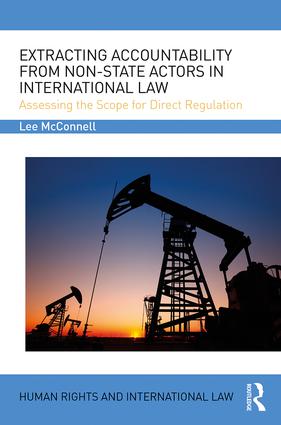
The human rights of communities in many resource-rich, weak governance States are adversely affected not only by the acts of States and their agents, but also by powerful non-State actors including multinational enterprises and non-State armed groups operating in the extractive industry. Contemporary phenomena such as globalisation, privatisation, and the proliferation of internal armed conflict have all contributed to the increasing public influence of these entities, and the correlative decline in State power. Dominant international legal scholarship has traditionally maintained a binary distinction between ‘State’ and ‘non-State’ entities, despite the plurality of actors which fall into this latter category, and the unwillingness or incapacity of States to effectively constrain their operations.
This book responds to the persistent challenges which emanate from the regulation of particular ‘non-State actors’ operating in, or sustained by, the extractives industry in many weak governance States. It assesses the practical and theoretical impediments to the direct international legal regulation of multinational enterprises and non-State armed groups exposing the practical failings of the dominant, State-centric accountability regime. The book goes on to explore two alternative approaches the first drawing from the field of discursive democracy while the second is derived from Hans Kelsen’s Pure Theory of Law. The two approaches are evaluated in terms of their practicality in regulating non-State actors as well in terms of their utility as theoretical foundations for future international practice.